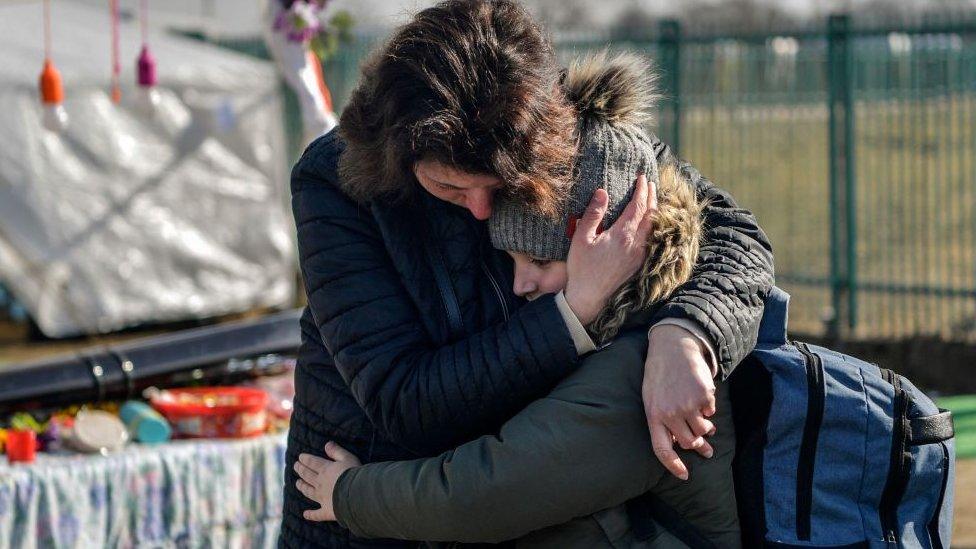Ukraine UK refugee hosting scheme: Mum-of-four opens home to refugees
- Published
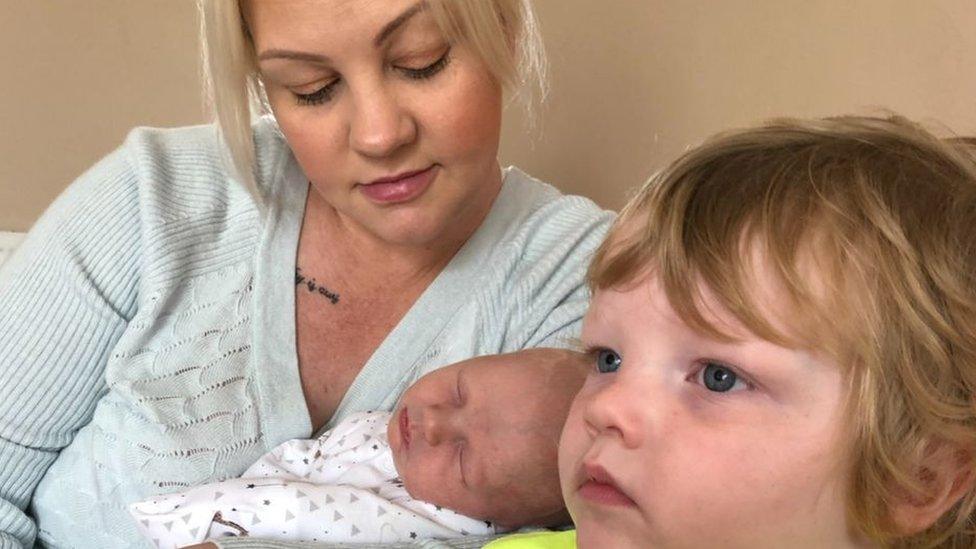
Mandi Arnold with her two youngest children, Presley and Phoenix
Two days before Russia invaded Ukraine, Mandi and John Arnold were curled up on the sofa of their home in Shropshire, streaming a film about the Chernobyl nuclear disaster on Netflix.
It struck a nerve with the mum-of-four - she and John were both born in 1986, the same year as the disaster. So later that week when Mandi saw news of millions of Ukrainians fleeing their homes to escape Russian attacks, including in the Chernobyl area, she jumped at the chance to help.
"From the moment this all started to evolve, my heart just went straight out to them and I thought if I could help anyone I would do so without any reservations," she says.
On Monday evening Mandi, 35, was among the almost 90,000 people to register their interest in a new visa scheme allowing people in the UK to host Ukrainian refugees in their own homes.
Many of those who have signed up to help are doing so because their children have all grown up, left home and they've got some extra space.
But Mandi's house is a pretty hectic place to be. She and John live with their sons, one-year-old Presley and four-year-old Phoenix, and Mandi's nine-year-old daughter, Amalia - not to mention pet cat Nala and Oakley the Labrador. Mandi's 19-year-old daughter, who's studying in Scotland, is also "in and out" of the house.
"It's quite a busy household anyway, it's constantly on the go," Mandi says.
"Adding more would just be more love, more memories."
The family will free up one of the bedrooms for refugees to live in. They'll bring in an old single bed from the garage and have space for a child as well as an adult, if needed.
Mandi and John's sons aren't quite old enough to understand that they'll be sharing their home with strangers in the near future, but Mandi has explained it to her daughter, Amalia. She's excited about meeting new people and will "welcome anyone with open arms", Mandi says.
Under the newly-launched Homes for Ukraine scheme, UK households can offer a space for a refugee to live for at least six months.
Each host household will be offered £350 a month, tax-free, as a "thank you" payment. They won't be expected to provide food and living expenses, but can choose to offer this.

Mandi says her daughter Amalia (left) is excited to meet any refugees. Her younger brothers Presley (centre) and Phoenix will share a room to make more space
Mandi fled an abusive relationship when she was younger, leaving her network of friends and family behind to start a new life.
To begin with she had nowhere to call home, so lived in hotels for months.
She and John scraped the money together from what he'd saved up from his business selling private number plates.
Mandi says she knows fleeing a warzone is "completely different" to what she went through, but she can relate to the feeling of disconnect many Ukrainian refugees might have as they step foot on UK soil for the first time.
"I know the feeling of removing yourself from somewhere that you once called home, or once felt secure and safe," she says.
"I've been in times of struggle, I've been in situations where I really needed someone to help. To know that I've overcome that and got to where I am now, I know it's something that can be achieved and all it takes is time and love. And these people deserve that."
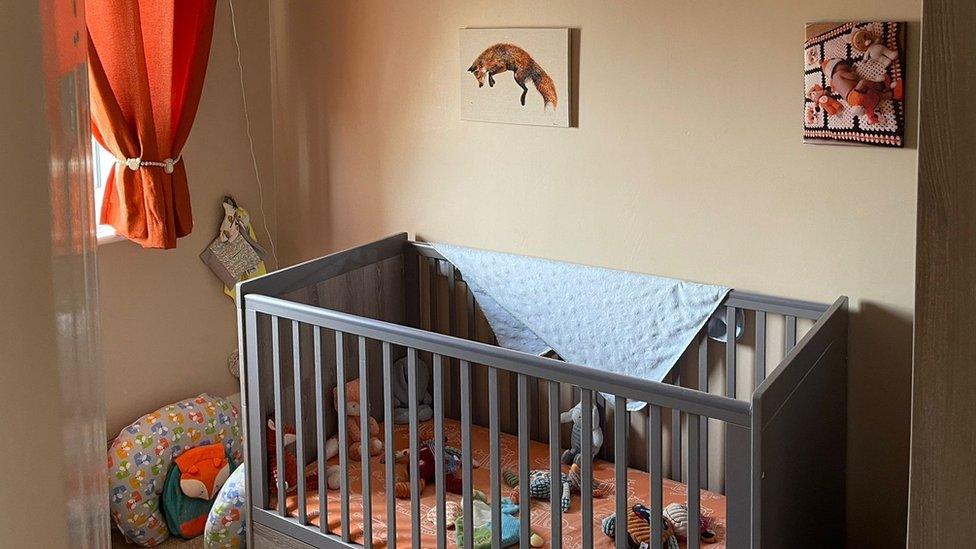
By moving Presley in with Phoenix, this room in the Arnold's home can be freed up for refugees
Mandi says she thinks the whole family will benefit from taking in Ukrainian refugees.
"My kids, they've got all the love to give and we don't have much family. I'm not saying I'm going to grab [the refugees] and say 'you're my family now,' but they will be welcomed as a family member," she says.
"I've got a lot of love to give and it's the perfect opportunity to give it to someone who's in need."

Top tips on being a refugee host family...
...from people across the UK who have hosted refugees or asylum seekers in their own homes in the past:
1. Be prepared for the mental impact. Lucy Stevens, near Colchester: It is likely people will be very traumatised. Our foster son was highly traumatised and required a lot of input with regards to mental health [which] also has an impact on your own family.
2. Find people who match your stage of life. Ruth Elphinston, Birmingham: If you've got young kids, bring in families with young kids. Or if your kids have left home, think about hosting a young adult. It makes things easier as they'll fit in with the way you're living your life already.
3. Lean on your community. Ruth: Ask neighbours and friends to help you out. They could maybe show your refugees around the area, offer them work, or have you all over for a meal.
4. Think about ground rules. Alison Baxter, Oxford. Sharing the sitting room, smoking and if you will cook for them are all points to consider. It's better to set down clear guidance because your guest is going to be anxious if you just say "make yourself at home".
5. Give them space. Robert and Margaret Spooner, Sheffield: Don't force your guests to speak about their experiences. Instead focus on finding common bonds, as well as giving them the chance to do small jobs or make food to take their mind off things.
6. Get the GP sorted early. Karina Litvack, London: I've never found access to the NHS to be a problem for the refugees I've helped, but you sometimes have to book an interpreter which takes longer.
7. Don't feel bad about saying no. Justyna Bell, Belfast: Have a conversation with your entire household before you decide for sure about taking someone in. Really open up and don't think it's not very humanitarian if you have some objections.
Related topics
- Published21 July 2022
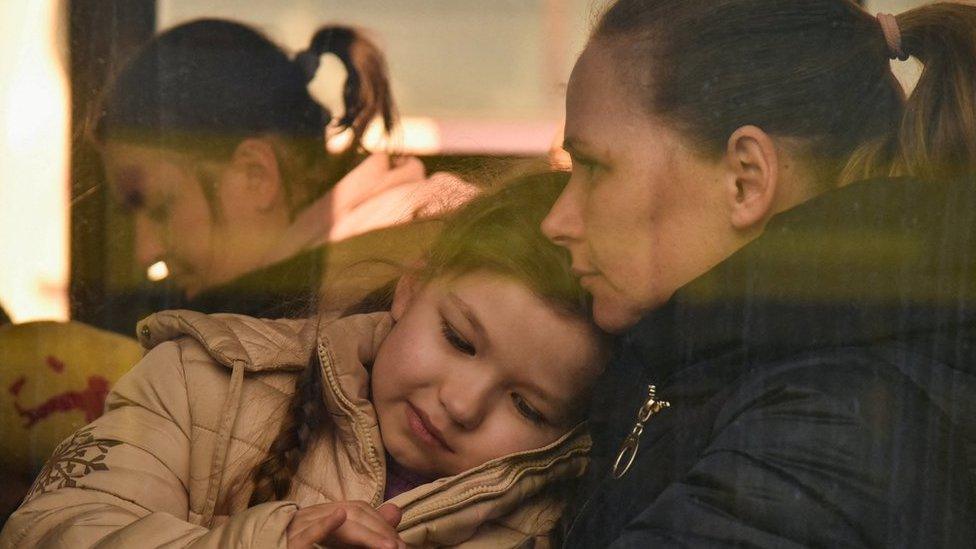
- Published8 April 2022
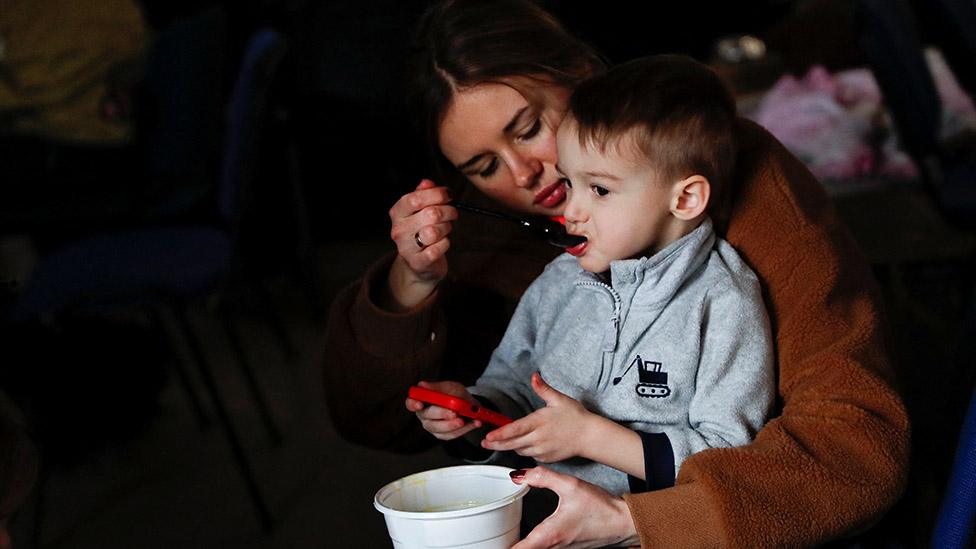
- Published15 March 2022
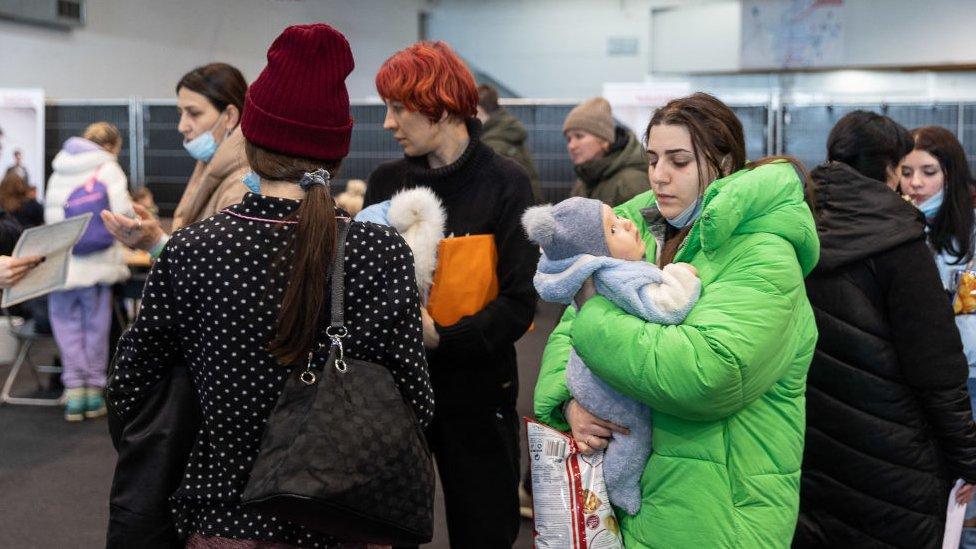
- Published14 March 2022
